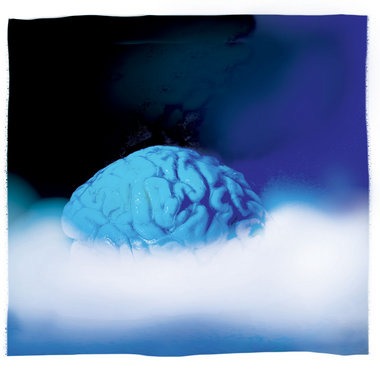Posts Tagged ‘chemo-brain’
Growing research shows how two of the major cancer treatments, radiation and chemotherapy, can lead to long-term cognitive impairment
Mind jumble: Understanding chemo brain (Stanford Medicine): Sarah Liu was treated for leukemia as a teenager. She attended her high school graduation on a four-hour pass from Lucile Packard Children’s Hospital Stanford and was bald under her white graduation cap, her arm bandaged where she’d been receiving chemotherapy drugs. Liu survived cancer and the ordeal of…
Read MoreFirst, do no harm? Study finds association between androgen deprivation therapy and increased risk of Alzheimer’s disease
Prostrate Cancer Treatment Tied To Alzheimer’s Risk (New York Times): “Hormone therapy, a common treatment for prostate cancer, is associated with an increased risk for Alzheimer’s disease, a new study has found…Overall, those treated with hormone therapy had an 88 percent increased risk of Alzheimer’s compared with other patients. The longer
Read MoreUpdate: To succeed at school, children with ADHD need both medication and non-medication treatments
. Time for SharpBrains’ March e‑newsletter, wrapping up this month’s key neuroscience studies, neurotechnology news and brain fitness insights. Upcoming events May 2015 Online Course: How to Navigate Conventional and Complementary ADHD Treatments for Healthy Brain Development NeuroGaming + ESCoNS Summit 2015 (May 5–7; San Francisco) New research To improve academic outcomes, children with ADHD need both medication…
Read MoreNext: Tools to detect and treat “chemo brain” symptoms common in around 35% of breast cancer survivors
UCLA study reveals treatment for women with breast cancer suffering cognitive difficulties (HealthCanal): “UCLA researchers have developed a program that could improve the day-to-day lives of women with breast cancer by addressing post-treatment cognitive difficulties, sometimes known as “chemo brain,” which can affect up to 35 percent of women after their treatments
Read MoreFinally, growing awareness of chemotherapy-induced cognitive deficits
Brain activity changes seen after chemo (Reuters): “For some women with breast cancer, changes in brain activity while multitasking could explain “chemo brain” – reduced mental functioning that many experience after chemotherapy, Belgian researchers say. “Cognitive complaints of people increase with chemotherapy and
Read MoreMeasuring and treating Chemo Brain
‘Chemo Brain’ After Breast Cancer Backed by Study (US News): “Breast cancer patients treated with chemotherapy are at risk for mild mental deficits known collectively as “chemo brain,” a new study finds. Researchers at the Moffitt Cancer Center in Tampa, Fla., reviewed existing research on brain function (“cognitive” functioning) in
Read More



